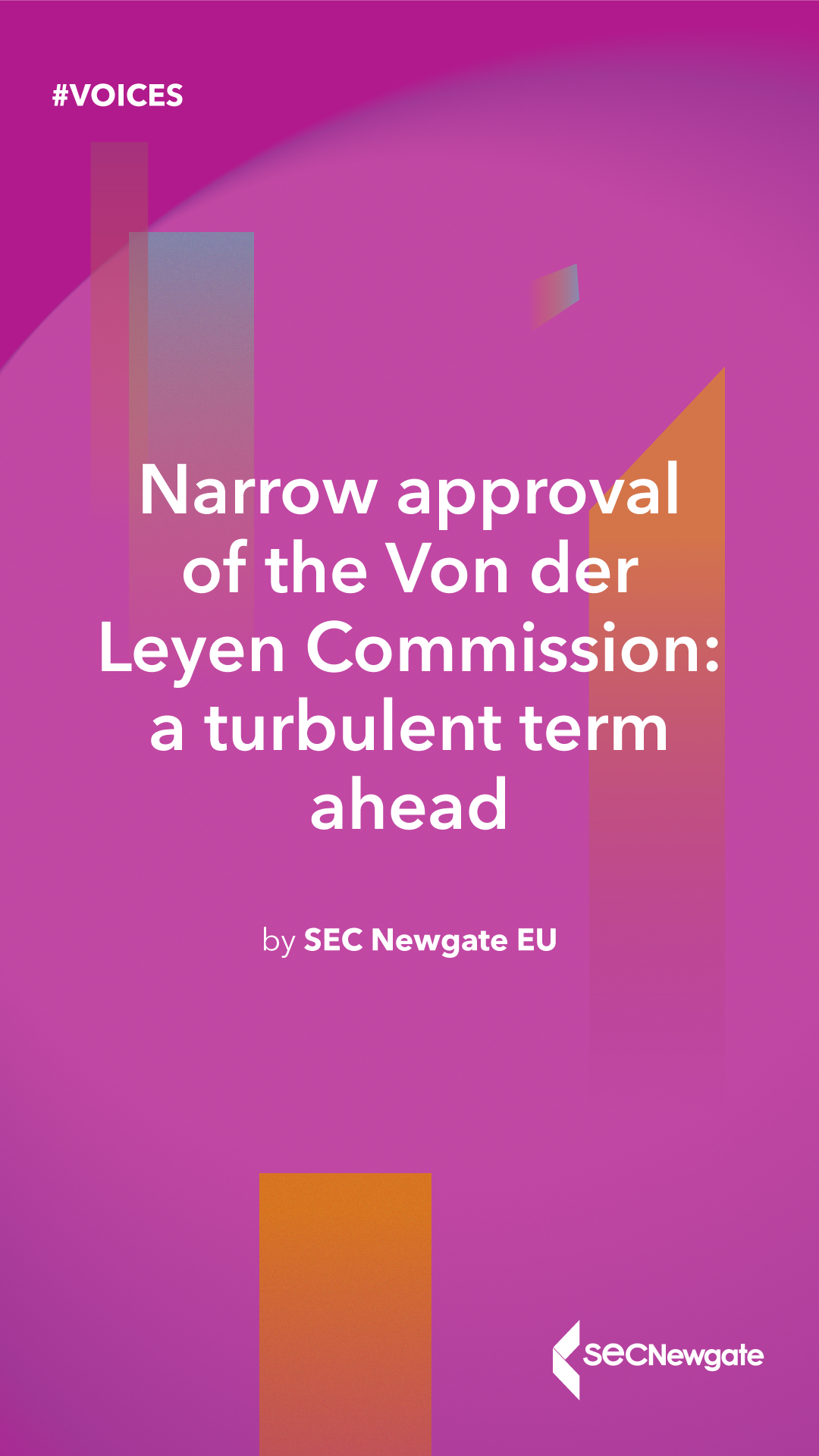About the Authors
Originally published on SEC Newgate EU’s website.
On November 27, the European Parliament narrowly approved Ursula von der Leyen’s new College of Commissioners with 370 votes in favour, 282 against, and 36 abstentions. This makes it the least supported Commission since 1993, reflecting deep divisions within the EU legislature. Despite its fragile mandate, the new Commission remains EPP-dominated, holding 14 of 27 posts.
Fragmented support and rising divisions
The College received general support from the EPP, S&D, and Renew Europe, but internal divisions were evident across most political groups, except for the far-left and far-right who unanimously opposed the Commission. The European People’s Party, von der Leyen’s own party, faced internal divisions over the final vote. Notably, the Spanish delegation in the EPP voted against the College of Commissioners, due to the inclusion of the Spanish Teresa Ribera as Executive Vice-President, affiliated with the S&D group and criticised for her alleged mismanagement responsibilities in the devastating flood in Valencia. The Greens were deeply split, highlighting ideological tensions. These fractures reveal growing challenges to party discipline and the impact of national politics on EU-level decisions.
Consequences of a limited political backing
The low approval signals significant challenges for the Von der Leyen Commission II, including unstable coalitions and strong politicisation of legislation. First, Von der Leyen will need to engage in constant political bargaining, swaying between the left and right wings of the Parliament to secure majorities. This balancing act is already evident in her decision to appoint Philippe Lambert, a former co-leader of the Greens, as an advisor. In particular, the decision reflects the need to conciliate the Greens in view of the appointment of ECR’s Raffaele Fitto as Executive Vice-President for Cohesion and Reforms. Second, with limited political support, even technical policy files may become partisan battlegrounds. In practice, this would mean increased uncertainty in the decision-making process. This could have a particular impact on initiatives connected to decarbonisation, industrial competitiveness and agriculture. We can expect that after the fragmented endorsement vote, the first deliverables of the Commission will be under particular scrutiny, including the announced Competitiveness Compass and the Vision for Agriculture and Food.
A precarious start
The fractured Parliament and highly politicised environment foreshadow a turbulent term for the new Commission, which is expected to take office on December 1st. Von der Leyen faces the daunting task of navigating deep ideological divides and forging a fragile legislative balance in an increasingly polarised Parliament. One thing is clear: the challenges ahead will demand an extraordinary level of diplomatic agility, unparalleled in recent European history.

